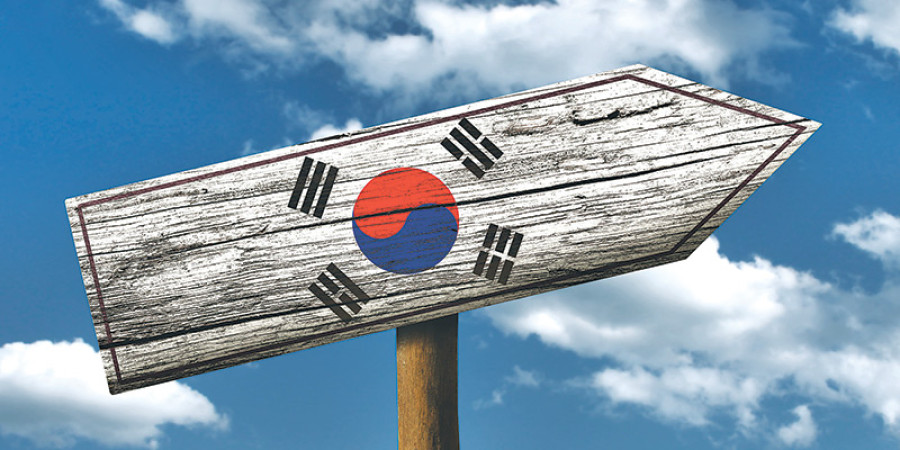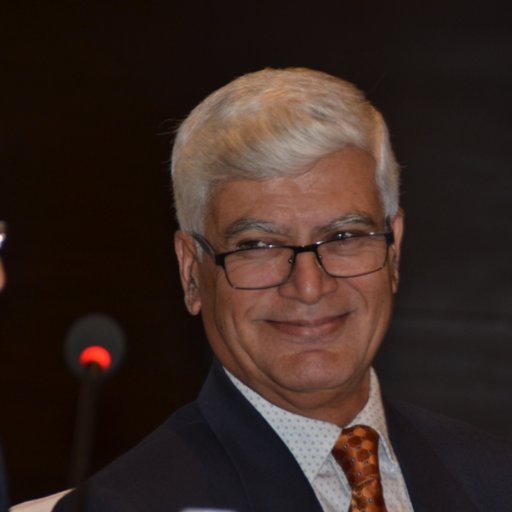Opinion
Seoul thoughts
More than 75,000 young Nepalis have taken the Korean language test hoping to be one of the 10,000 lucky ones to get to work in Korea under the Employment Permit System (EPS) this year.
Shambhu Ram Simkhada
More than 75,000 young Nepalis have taken the Korean language test hoping to be one of the 10,000 lucky ones to get to work in Korea under the Employment Permit System (EPS) this year. What makes the Republic of Korea (RoK) so attractive to Nepali jobseekers? What are the prospects of the quota being increased for Nepali workers? I have been to Korea several times in the past, but a short visit I made last April was exceptional.
Obvious goodwill
At the immigration counter at Incheon International Airport in Seoul, I was pleasantly surprised to see instructions in English and Nepali on the small machine on which you place your finger so it can read your fingerprint. The day after the international conference I was attending ended, our chargé d’affaires in Korea took me to visit the embassy. On the way, I noticed something and asked the smart young Nepali driver to pull over. On both sides of the street, there were Nepali and Korean flags and big signs saying ‘Happy New Year Nepal’. I took them as signs of goodwill towards Nepal and gestures of appreciation for the Nepalis working in Korea.
I was also informed that the remittance sent home by the 35,000 Nepalis in the RoK exceeded that sent by the almost 400,000 migrant workers in the Gulf. One evening, I had an opportunity to visit a restaurant owned by a Nepali who told me how he had landed in Seoul some years ago, started work as a waiter, struggled hard and now owned seven restaurants all over Korea. He is planning to invest the profits in different sectors in Nepal. I also met some Nepalis teaching in universities and others doing business. Although most Nepalis in Korea work as unskilled farm and industrial labourers, they are obviously decently paid and treated fairly and with greater dignity than in many other work destinations.
Economists often talk about how Nepal and the RoK embarked on the road to economic development almost at the same time. Korea is now a member of the Organisation for Economic Cooperation and Development (OECD), a group of countries with the highest per capita GDP in the world. It is embarrassing to even ask where Nepal stands. Nepalis know about Korea from mountaineers who come to climb the Himalaya, companies building different projects here and, of course, famous Korean brands like Hyundai and Kia cars, Samsung and LG mobile phones and other products.
But the story of Korea—how it suffered under external subjugation, the devastating Korean War immediately following the Second World War and the tragic division between the Communist Kim family ruled North and the liberal democratic system of the South and, of course, the differences in forms of governance and quality of life of the people—is extremely interesting. Despite ups and downs in politics, how South Korea managed to excel in development and achieve prosperity so fast to emerge as the fourth largest economy in Asia is even more fascinating. Why did Korean housewives hand over their savings, gold and jewellery to the government when the country was hit by a financial crisis some years ago? The answers may be found only after visiting the War Museum or the DMZ, the line between the two Koreas. Perhaps they can also better explain the reasons why the RoK is where it is today.
Everyone is accountable
When I was in Seoul, the general mood was sombre. President Park Geun-hye had been charged with abuse of power and corruption, disgraced by popular protests, impeached by parliament and finally ordered to vacate the office by the Supreme Court. She was transferred from the palatial Blue House, the official residence of the president, to a tiny prison cell where, I was told, she had to wash her plates and clothes and clean her room and bathroom herself. I felt sorry for the lady whose name had been so blackened, and who some said had been betrayed by her friend. But I amused myself by wondering what our own politicians would do in such a situation. I also recognised the failings of individual politicians, but admired Korea’s system of accountability and application of the rule of law to all. Perhaps this explains the real difference between our two countries.
As the cherry blossoms were starting to bloom and beautify Seoul, the political temperature too was rising for the new occupant of the Blue House due to protests and election fever. The Democratic People’s Republic of Korea (DPRK), also known as North Korea, was flexing its military muscle and testing missiles capable of carrying nuclear warheads over the nearby sea. The previous government had agreed to station the highly sophisticated THAAD missile defence system. Meanwhile, many Korean tourist sites were suffering as China was unhappy with this decision, and its tour operators had drastically reduced Chinese tourists visiting Korea. The US-RoK debate on who would be paying for the sophisticated and costly American weapons was increasing the political heat and intensifying the political campaign. Amidst all this, of most interest to Nepal is the man who finally emerged victorious in the presidential election, Moon Jae-in, a leader with a kind human heart. If that was not so, he would not have visited Nepal or participated in the relief work and the reconstruction of a school himself after the devastating earthquake.
I was touched by the goodwill of the senior Koreans I met. The chief justice told me that he had been in Nepal six years ago, and that he had gone on a short trek in the Annapurna region and would like to return. Sang-Hyun Song, professor emeritus of law, Seoul National University and President of the Korean Committee for Unicef, raised more than $5 million for Nepal’s earthquake victims and came here as the leader of the delegation that included the current President Moon. After meeting many other distinguished Koreans, government officials, university professors, judges, lawyers and businessmen, I left Seoul convinced that this is the most opportune moment to strengthen Nepal-RoK relations. All it takes now are some creative thinking and concerted efforts.
- Simkhada is a former Nepali permanent representative to the UN




 20.06°C Kathmandu
20.06°C Kathmandu










